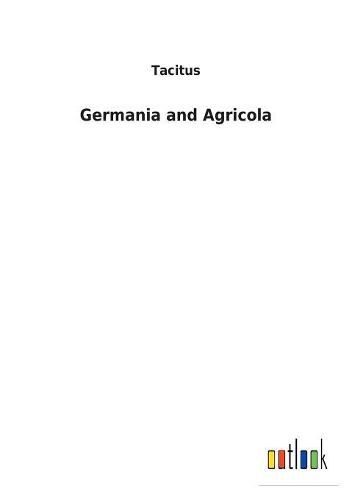Readings Newsletter
Become a Readings Member to make your shopping experience even easier.
Sign in or sign up for free!
You’re not far away from qualifying for FREE standard shipping within Australia
You’ve qualified for FREE standard shipping within Australia
The cart is loading…






Described by two prominent twentieth century leftist academics as one of the most dangerous books ever written, Roman historian Tacitus’s 98 AD work Germania is credited with almost single-handedly creating modern German nationalism after the manuscript’s rediscovery in 1462. Originally titled On the Origin and Situation of the Germanic Peoples (De Origine et situ Germanorum), it provides a vivid survey of the physical, cultural, and behavioral characteristics of the German people in what the Romans called Germania Magna- Greater Germany -that area east of the Rhine River. Germania begins with a description of the lands, laws, and customs of the Germanic people, and then moves on to detailed descriptions of the individual tribes all the way up to the Baltic Sea. This includes Tacitus’s famous description of the Germans as a pure and unmixed race with Nordic racial characteristics. It then describes the Germanic systems of government, religion, the egalitarian status of women in German society, and even a form of folk assembly, or parliament, at which important decisions were made by common vote and consensus, among many other things. The second work in this book, Agricola, originally titled On the life and character of Julius Agricola (De vita et moribus Iulii Agricolae) is a biographical work which tells the story of the author’s father-in-law, Gnaeus Julius Agricola, one of the most prominent Roman generals who took part in the final conquest of Britain. It includes many valuable comments about the racial characteristics of the pre-Roman British people and society, as well as fascinating details of the conquest of Britain and of how Agricola served as governor of the new province.
$9.00 standard shipping within Australia
FREE standard shipping within Australia for orders over $100.00
Express & International shipping calculated at checkout
Described by two prominent twentieth century leftist academics as one of the most dangerous books ever written, Roman historian Tacitus’s 98 AD work Germania is credited with almost single-handedly creating modern German nationalism after the manuscript’s rediscovery in 1462. Originally titled On the Origin and Situation of the Germanic Peoples (De Origine et situ Germanorum), it provides a vivid survey of the physical, cultural, and behavioral characteristics of the German people in what the Romans called Germania Magna- Greater Germany -that area east of the Rhine River. Germania begins with a description of the lands, laws, and customs of the Germanic people, and then moves on to detailed descriptions of the individual tribes all the way up to the Baltic Sea. This includes Tacitus’s famous description of the Germans as a pure and unmixed race with Nordic racial characteristics. It then describes the Germanic systems of government, religion, the egalitarian status of women in German society, and even a form of folk assembly, or parliament, at which important decisions were made by common vote and consensus, among many other things. The second work in this book, Agricola, originally titled On the life and character of Julius Agricola (De vita et moribus Iulii Agricolae) is a biographical work which tells the story of the author’s father-in-law, Gnaeus Julius Agricola, one of the most prominent Roman generals who took part in the final conquest of Britain. It includes many valuable comments about the racial characteristics of the pre-Roman British people and society, as well as fascinating details of the conquest of Britain and of how Agricola served as governor of the new province.